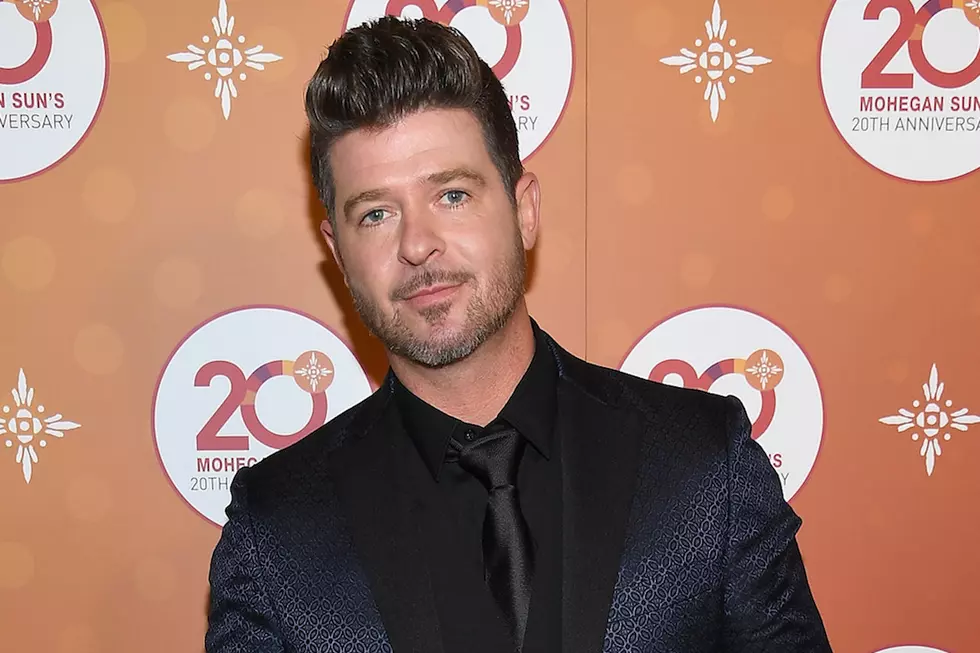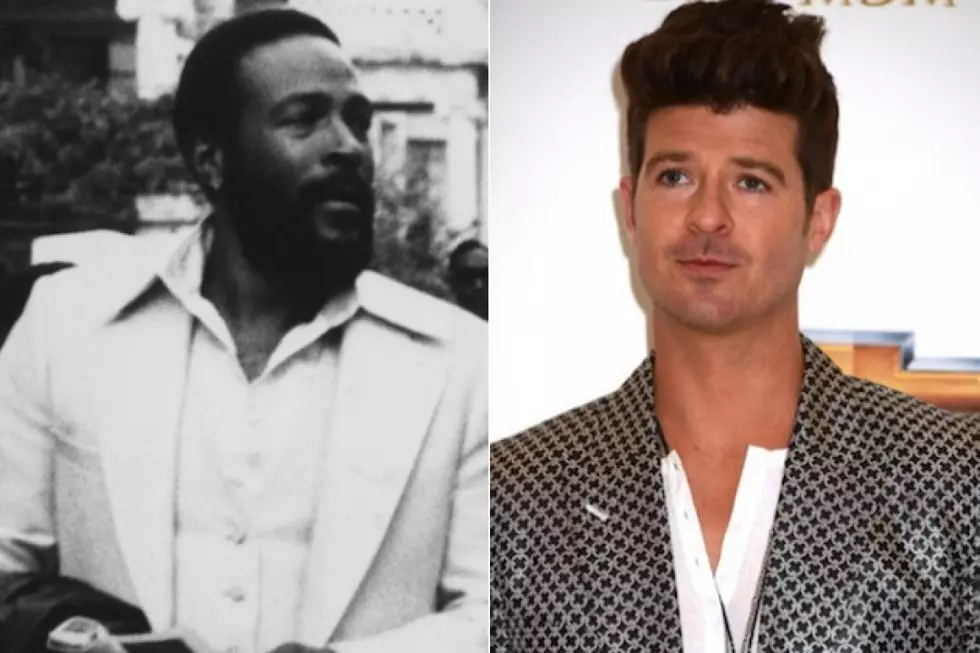
Pharrell Williams, Robin Thicke and T.I. Appeal ‘Blurred Lines’ Verdict
Seems as though the case that rocked the music industry, involving Robin Thicke's "Blurred Lines" and Marvin Gaye's "Got to Give it Up" isn't over yet.
Thicke, Pharrell Williams and T.I. are appealing the March 2015 decision in which they were declared guilty of copyright infringement. The Gaye family was ultimately awarded over $5 million, plus 50 percent of the song's royalties going forward. Their previous appeal for a retrial was dismissed.
However, last night (Aug. 24), The Guardian reports that lawyers representing the three artists filed their opening brief in their attempt overturn the guilty verdict.
“If left to stand, the Blurred Lines verdict would chill musical creativity and inhibit the process by which later artists draw inspiration from earlier artists to create new popular music," the brief stated.
This appeal is based on the belief that the judge in the case misread the law because he allowed a comparison of the recordings of the two songs, rather than just the sheet music. Their lawyers argued that if the judge simply considered the sheet music, then the case would not have gone to trial.
“What happened instead was a cascade of legal errors warranting this court’s reversal or vacatur for new trial,” the opening brief states. “At summary judgment, the district court entertained expert testimony by musicologists for the Gayes who based their opinions entirely on the sound recording, not the deposit copy. The court correctly filtered out non-deposit copy and generic musical features from their testimony, but then erroneously failed to compare what remained to Blurred Lines.
“At trial, the district court made things worse. While correctly excluding the Got to Give It Up sound recording itself, the court erroneously allowed the Gayes’ experts to testify about the sound recording anyway, including by playing their own musical excerpts based on the sound recording. The court then instructed the jury that it could consider all this testimony in its substantial-similarity analysis.”
We'll have to see how this continues to play out.
More From TheBoombox

![Robin Thicke Welcomes New Baby With Girlfriend April Love Geary [VIDEO]](http://townsquare.media/site/625/files/2018/02/Robin-Thicke-April-Love-Geary-Welcome-Child.jpg?w=980&q=75)


![Robin Thicke Calls Cops On Paula Patton Amid Heated Custody Battle [VIDEO]](http://townsquare.media/site/625/files/2017/01/Robin-Thicke-Call-Cops-on-Paula-Patton.jpg?w=980&q=75)


![Robin Thicke Pours It Up on ‘One Shot’ Featuring Juicy J [LISTEN]](http://townsquare.media/site/625/files/2016/11/Robin-Thicke-One-Shot.jpg?w=980&q=75)

